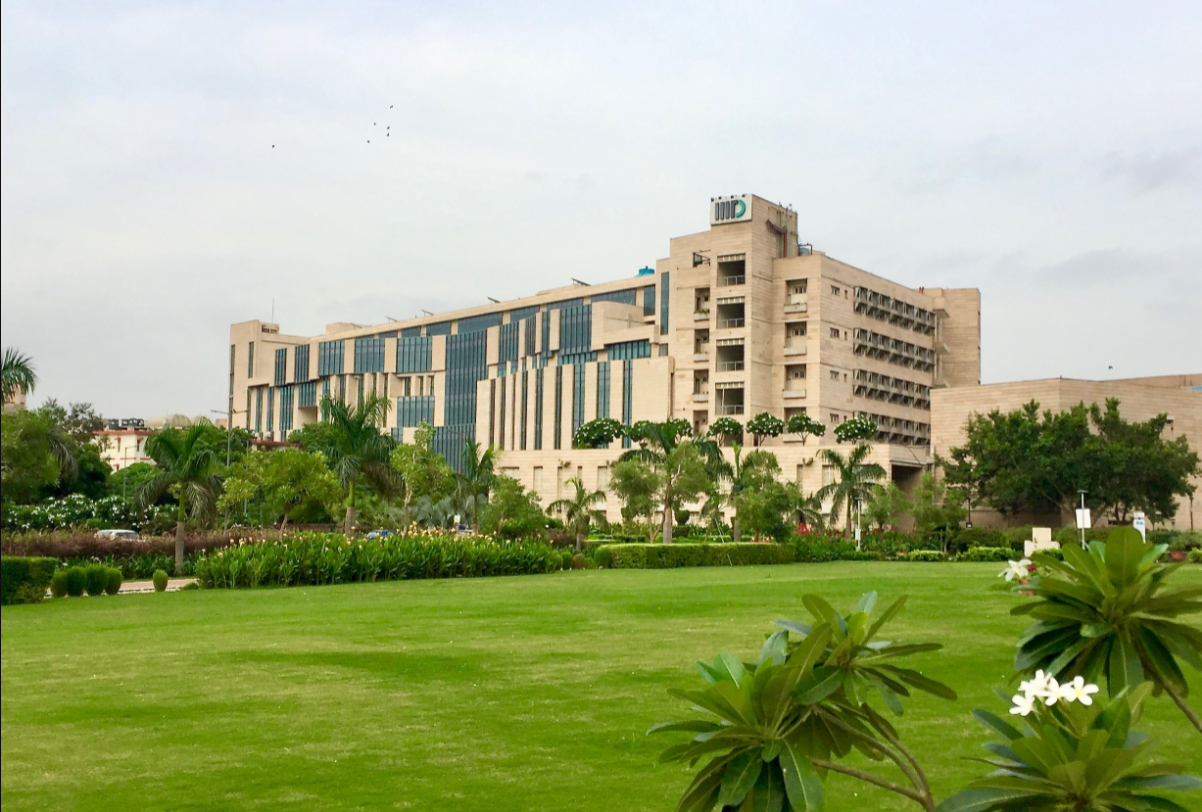
Green Policy of IIIT-Delhi campus is adopted to maintain a sustainable eco-system of the campus, surrounding areas, and conservation of nature and natural resources, flora and fauna. Our Green Policy includes monitoring, directing, and inspecting human activities, taking different actions to prevent harmful effects on the environment and natural resources ensuring no hazardous effects on the occupants now and the future generations.
- There are four broad areas for management and monitoring of the environment of the IIITD campus at present in compliance with the environmental norms.
- Environmental Monitoring
- Waste Management in the campus
- Energy Efficiency and Conservation
- Beautification and bio-diversity conservation of the campus
Green Features and activities
Below are a few highlights of the action taken for the maintenance of Green Policy in the IIIT-Delhi Campus.
- The buildings are designed in sync with the original contours of the site .
- The location of the buildings are in a manner that the academic areas form the hub flanked by faculty residential areas on one side and student hostels on the other side to minimize travel distance . The Yulu e-bike proposal is in process of implementation for easier travel on campus and reduced use of conventional fuel vehicular traffic.
- Orientation of buildings and window openings are designed for optimum utilization of natural light. The terraces and walls are provided with insulation , dry cladding ,cavity walls etc to reduce incoming solar radiation thereby reducing air conditioning load considerably .
Solid waste management
- All solid waste is segregated in Biodegradable and non-biodegradable waste and e-waste on-site and are stored in separate bins in Colors of “Green”, “Blue” and “Red”.
- All biodegradable waste, wet and garden waste is stored at the site for generating Compost using 100 kg smart composter machine and vermicompost pits.
- The daily Municipal Solid Waste is disposed off to M/S DDSIL (M/S IL&FS) an agency appointed by SDMC after segregation.
- The bio medical waste from health centre and CB labs are disposed through M/s Biotics authorized agency of the DPCC.


Sewage Waste Management - SewageTreatment Plants
The sewage of the entire campus is treated by 2 X 65 KLD + 2 X 90 KLD sewage treatment plant and this treated water generated is used for horticulture, dual plumbing has been provided for the campus buildings thus making it a zero discharge campus.
Rain Harvesting Pits for Conservation of Water Resources
The Institute has 08 rain Harvesting pits with a tank capacity of over 473Kl against the required capacity of 289 KL. The groundwater levels in the campus have remained stationary for the last seven years.


Energy Conservation and Management
The works of the solar power plant on terraces of all new buildings with a capacity of around 220 KWp have been commissioned and operational. There are solar hot water systems with PNG backup besides the state of the heat pumps for hot water supply to hostels, mess kitchens and residences..Energy audit by third party have also been conducted and implemented in a phased manner.
Smart Composter Machine and Vermicompost Pits
Procurement of Eco-friendly state of the art “Composter” to convert the wet food and garden waste into manure. The Machine can handle up to 100 kg wet and garden horticulture and Food waste into manure. IIITD is one of the first Institutes to use smart composter machines and to take the Eco-friendly initiative. There are multiple vermicompost pits where the green and food waste are treated for the generation of manure etc.
The Institute is Zero Sewage, Zero wet, and green waste generating Institute.


Beautification of the Campus
Herbal gardens and Botanical gardens have been created with a large collection of medicinal plants and endangered species of plants and trees for maintaining the ecology and greenery of the campus. Around 1700 trees have been planted to create a buffer around the campus.
Cleanliness Drives
Another important event is the cleanliness drive, where student volunteers, some staff, and faculty members spent half a day in the “Swachh Bharat Abhiyan''. Mechanical road Dulevo sweeping is also used as per pollution GRAP.


Energy Conservation
The energy consumption is treated on the centralized dashboard and BMS system . A complaint redressal mechanism is available just a call away and computerized tracking of the same to closure is monitored periodically for resolution of campus
Awards and Recognitions
The Institute has received The Cleanest Campus award twice from the AICTE and the “GRIHA Four star provisional rating “ for its major academic blocks.

Last updated: 12-05-2024



